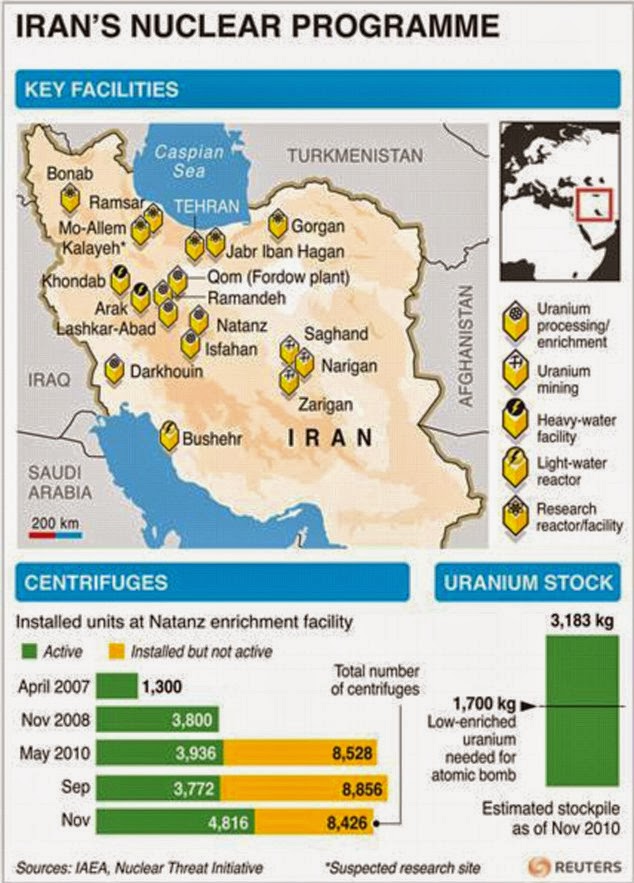I have been blogging lately about the "framework" negotiated between the U.N. Security Council members (U.S., Britain, France, Germany, Russia, China) and Iran with respect to the Iranian nuclear program. The framework will be the basis of a final agreement to be drafted by June. Unfortunately, there are already contentious issues being raised by Iran over a U.S. fact sheet on the negotiated framework released last Tuesday. The next day, Iran publicly rejected concessions that it had made according to the White House document.
Top Iranian officials are denouncing the W.H. fact sheet as a "lie." They say that they never agreed to let U.N. inspectors into any Iranian military sites. “The country’s (Iran's) military officials are not permitted at all to allow the foreigners to cross these boundaries or stop the country’s defensive development under the pretext of supervision and inspection.” A U.S. State Department representative said that access to military sites was critical and that details were still being worked out.
Iran says that the Iranian nuclear research program will continue under any agreement. They also expressed the intent to inject uranium gas into the most advanced centrifuges that they possess when any deal is finalized.
Iran says that all sanctions must be immediately lifted upon the signing of any final agreement based on the framework. The U.S. stance on sanctions says that they will be lifted over time based on Iran's continued compliance with the final agreement. It will take months for Iran to comply with any final deal and the U.S. intends for some sanctions to continue until Iran has carried out requirements such as reducing uranium stockpiles and decommissioning and storing about two thirds of their centrifuges. There is some wiggle room in the distinction between the date that a final agreement is signed and the date that a final agreement goes into effect.
In any case, suspending sanctions could be a complex and time-consuming process. The U.S. President can sign an international agreement with the rest of the U.N. Security Council and Iran without Congressional approval. He can also drop some U.S. sanctions with executive action. However, there are other sanctions that will require Congressional approval to remove and, in this political environment with serious Republican opposition, that may prove difficult. The U.N. Security Council may remove existing sanctions but draft new ones.
The top Iranian negotiator on the framework was treated to a "hero's" welcome when he returned to Iran following the announcement of the framework. International sanctions and isolation have been a serious burden for Iranians and many Iranians hailed the framework as the beginning of the return of Iran to the international community of nations.
A former U.S. Pentagon advisor said that the schism emerging between the U.S. and the Iranians was "startling." He thinks that the U.S. and Iran have entirely different ideas about what the negotiated framework says. He claims that Obama is asking the American people to accept an Iranian deal that "Obama now asks the United States to embrace a deal that according to the Iranians doesn’t permit full inspections, doesn’t eliminate plutonium production, provides sanctions relief based on Iranian promises and not behavior, and doesn’t eliminate Iran’s path to a bomb,” Rubin said.
In spite of some harsh comments by Iranian officials, most of the Iranian leadership has endorsed the framework. It will take a lot of hard work on the part of all parties involved to draft a final agreement that is acceptable to all parties. Without a deal, many international Iranian sanctions will be removed regardless of U.S. actions and Iran would be free to proceed with its nuclear program, including development of nuclear weapons if it desires.
